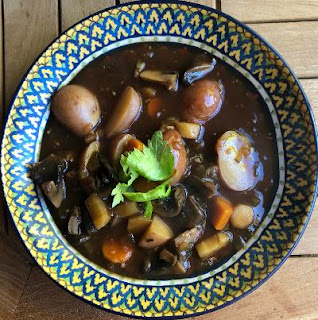READ
The book I
chose for Ireland, Normal
People, by Sally Rooney, is a New York Times bestseller and the
basis for an Emmy-nominated series on Hulu. A character-driven book with
no real plot, it follows the relationship of two young people living in the
fictional Irish town of Carricklea, located in the province of Connacht.
Marianne
Sheridan and Connell Waldron attend school together, although they don’t talk
to each other there. Connell is popular, a good student and a key member of the
school’s soccer team, while Marianne, while also a good student, is awkward and
has no friends. Marianne’s family is wealthy, and the way that she and Connell
begin to connect is during the times that he comes to her house to pick up his
mom, who cleans house for Marianne’s family. They begin to develop a
relationship, but Connell makes Marianne promise that she won’t tell anyone at
school about it. She is okay with that up until the time that he does something especially humiliating.
They both
end up attending Trinity College in Dublin. By that time, they are no longer in
communication as Marianne has stopped returning Connell’s calls. When they do
reconnect, it seems that Connell is now the awkward one with few friends, and
Marianne is popular, having fit in better with the more affluent students that
attend Trinity. Throughout the rest of the book, Marianne and Connell come
together and then, either through purposeful acts or misunderstandings, drift
apart. At times they are a couple, and at other times, they are in
relationships with other people. But they almost always remain each other’s
best friend.
Both
Marianne and Connell have serious self-esteem issues and suffer from bouts of
depression. Marianne’s father is dead, so her family consists of her abusive brother
and her cold, unsupportive mother. She tells Connell that she wonders why she
can’t make people love her. “Sometimes I think I deserve bad things because I’m
a bad person,” she says.
Connell has
a wonderful relationship with his mother, who got pregnant at the age of 17 and
had to drop out of school. He doesn’t know who his father is, and doesn’t
really care. Having been popular in high school, where everyone had known him
all his life and it didn’t matter that his family had no money, he is
unprepared for the solitary life he leads in college. He wonders why his mom
didn’t get an abortion, which would have made her life much easier, and he has
a certain amount of guilt about the dysfunctional nature of his relationship
with Marianne. He “feels like he has ruined the life of everyone who has ever
even marginally liked him.”
Normal People is
not a happy book, but I thought it was a page turner. I found the ending
somewhat abrupt, but by then I was familiar enough with the characters to have
a pretty good idea of how their lives would proceed for many years to come.
COOK
Food was barely
mentioned in Normal
People, and Irish food not at all. I ordered a vegan corned beef,
thinking I would make corned beef and cabbage, but decided I’d better find out
whether that’s really a traditional Irish dish. It is not. It’s apparently a
dish that American Irish people created after leaving Ireland, so that wasn’t
going to work for this blog post.
Instead, I
found a recipe for vegan Irish stew
on the Brand New Vegan website, using portobello mushrooms in place of the
traditional lamb or mutton. And for all you vegans who want your food to be
oil-free, this recipe contains not a drop of oil. Although it’s really too hot
to be making and eating stew right now, I enjoyed this dish and will
look forward to making it again this fall and winter.
GIVE
Suicide is a
recurring topic in Normal
People. At one point, Marianne tells Connell that the last time she was
home, her brother told her she should kill herself, and her mother just said
something like, “oh, don’t encourage her.” Someone Marianne and Connell knew in
high school commits suicide a few years after graduation. And Connell finds
himself having suicidal thoughts and ends up seeing a therapist.
So when I
found a project on the GlobalGiving
website offering counseling help to suicidal Irish people, that was where I
chose to send my donation. According to the project description, “There is an
increase in self harming in Ireland, with official guesstimates around 60 000
cases per year. In 2015 Ireland was recorded to have the second highest
statistics per capita for suicide for young men under 19 in Europe and the
highest stats for young women in that age group. Most counselling support is
concentrated in cities, whilst less is offered in the midlands, or the west of
Ireland.”
This project
will “offer low cost, holistic counselling and support in the midlands and west
of Ireland where clients can explore issues cognitively, emotionally or
spiritually. Our target group are people who may be isolated or disconnected
within the community, or feel they are not coping with life issues. The
emphasis is on finding hope and purpose in life and in so doing addressing poor
mental health.” More information about this project is available at https://www.globalgiving.org/projects/counselling-help-to-20-suicidal-irish-people/.
NEXT
STOP: ISRAEL





